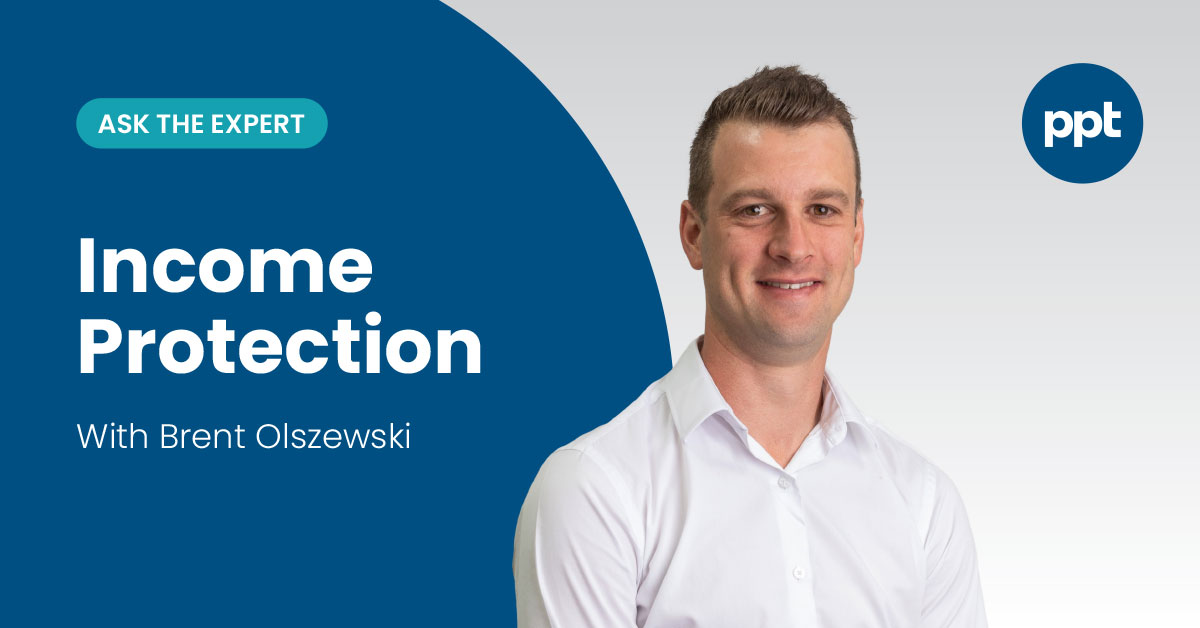Ask the Expert: 5 Key Questions About Income Protection

As part of our new Ask the Expert Series, Brent Olszewski from PPT Financial shares critical insights on income protection insurance, a vital tool for ensuring financial stability during uncertain times.
Below, Brent answers five essential questions to help you understand how income protection can safeguard your wealth and maintain your standard of living.
1. What Makes Income Protection Different from Other Insurance Types?
Income protection insurance provides a unique layer of security beyond life or health insurance. It replaces a significant portion of your income if you’re unable to work due to illness or injury. Unlike health insurance, which covers medical costs, income protection ensures your everyday expenses—such as mortgage payments, utility bills, and groceries—are covered. This financial safety net lets you focus on recovery without the burden of financial stress.
2. How Can I Customise My Income Protection Policy?
Income protection policies offer flexibility through adjustable benefit periods and waiting periods. The benefit period determines how long you receive payments while unable to work, ranging from a few months to several years, or even until retirement age. The waiting period is the time you wait after becoming unable to work before payments begin, which can be as short as two weeks or as long as a year. By selecting the right combination, you can balance coverage and premium costs to suit your needs.
3. What Are the Tax Benefits of Income Protection Insurance?
Income protection premiums are generally tax-deductible, making them appealing for high-income earners. However, the tax treatment of benefits depends on how the policy is structured. For personally held policies, benefits are typically treated as taxable income. If the policy is held through a superannuation fund, tax rules may differ. Consult your accountant or financial adviser to fully understand and maximise the tax advantages of your policy.
4. How Does Income Protection Fit into My Broader Financial Plan?
A well-designed income protection policy should align with your overall financial strategy, including asset allocation, investment goals, and retirement planning. For example, if you have a robust emergency fund or passive income, you might choose a longer waiting period to lower premiums. If you face high fixed expenses, a shorter waiting period may be better. Work closely with your financial planner to ensure your policy enhances your comprehensive financial plan.
5. What Should I Know About Policy Exclusions and Definitions?
Income protection policies include exclusions and definitions that can affect your coverage. Common exclusions cover pre-existing conditions, certain injuries, or specific illnesses. It’s crucial to review these carefully to avoid surprises during a claim. Additionally, policies vary in defining “disability” or “unable to work.” Some require you to be unable to perform any suitable occupation, while others focus on your specific role. Understanding these distinctions ensures your coverage meets your expectations.
Final Thoughts
Income protection insurance is a cornerstone of a robust financial strategy, offering peace of mind and stability during unexpected challenges. By exploring these key questions with your financial planner, you can tailor a policy that protects your financial future. For personalised advice, contact PPT Financial to discuss your unique needs and circumstances.
Want more information?
To learn more about income protection contact Brent on (03) 5331 3711 or enquiry online.
DISCLAIMER: The material and contents provided in this publication are informative in nature only. It is not intended to be advice and you should not act specifically on the basis of this information alone. If expert assistance is required, professional advice should be obtained.
PPT Financial Pty Ltd (ABN 64 050 243 073)
Australian Financial Services Licence No 252992
Director Representatives: Tim R Hovey, Peter J O’Connell, Cameron R Moore, Brent P Olszewski.


